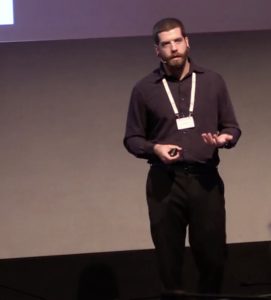 In this video from PASC18, Robert Searles from the University of Delaware presents: Abstractions and Directives for Adapting Wavefront Algorithms to Future Architectures.
In this video from PASC18, Robert Searles from the University of Delaware presents: Abstractions and Directives for Adapting Wavefront Algorithms to Future Architectures.
Architectures are rapidly evolving, and exascale machines are expected to offer billion-way concurrency. We need to rethink algorithms, languages and programming models among other components in order to migrate large scale applications and explore parallelism on these machines. Although directive-based programming models allow programmers to worry less about programming and more about science, expressing complex parallel patterns in these models can be a daunting task especially when the goal is to match the performance that the hardware platforms can offer. One such pattern is wavefront. This paper extensively studies a wavefront-based miniapplication for Denovo, a production code for nuclear reactor modeling.
We parallelize the Koch-Baker-Alcouffe (KBA) parallel-wavefront sweep algorithm in the main kernel of Minisweep (the miniapplication) using CUDA, OpenMP and OpenACC. Our OpenACC implementation running on NVIDIA’s next-generation Volta GPU boasts an 85.06x speedup over serial code, which is larger than CUDA’s 83.72x speedup over the same serial implementation. Our experimental platform includes SummitDev, an ORNL representative architecture of the upcoming Summit supercomputer. Our parallelization effort across platforms also motivated us to define an abstract parallelism model that is architecture independent, with a goal of creating software abstractions that can be used by applications employing the wavefront sweep motif.”
Robbie Searles is a PhD student at the University of Delaware. His research area focuses on high performance computing, specifically leveraging high-level programming models to target and optimize computational science applications running on parallel architectures and next-generation HPC systems. His PhD advisor is Dr. Sunita Chandrasekaran.
Co-Authors: Sunita Chandrasekaran (University of Delaware), Wayne Joubert and Oscar Hernandez (Oak Ridge National Laboratory)




